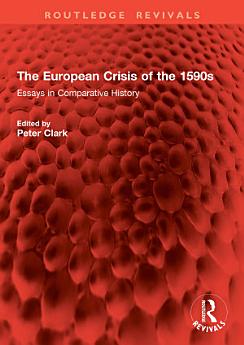The European Crisis of the 1590s: Essays in Comparative History
About this ebook
The book is divided into two parts. The first analyses the particular mesh of difficulties in different areas of Europe, covering all the major countries—England, France, Germany, the Netherlands, Spain, and Italy. The second part discusses more general issues such as the impact of war and the role of the state. From a systematic, comparative examination of one period of acute difficulty and upheaval we gain valuable insights into the general nature of the economic and social crises which recurred in the early modern era. Important and vivid light is also shed on the long-term social, economic, and institutional changes affecting European countries c.1550-c.1650. General findings are emphasised in the editorial introduction and in the wide-ranging conclusion by J.H. Eliott which offers a powerful evaluation of the historical significance of the 1590s.
This volume will be essential reading for academics, students and others interested in the economic, social, and political history of Britain and continental Europe during the sixteenth and seventeenth centuries. It will also be valuable for all those working in the new field of crisis and catastrophe.
About the author
Peter Clark is Emeritus Professor of European Urban History at the University of Helsinki, Finland. He has published extensively on European and global urban history






